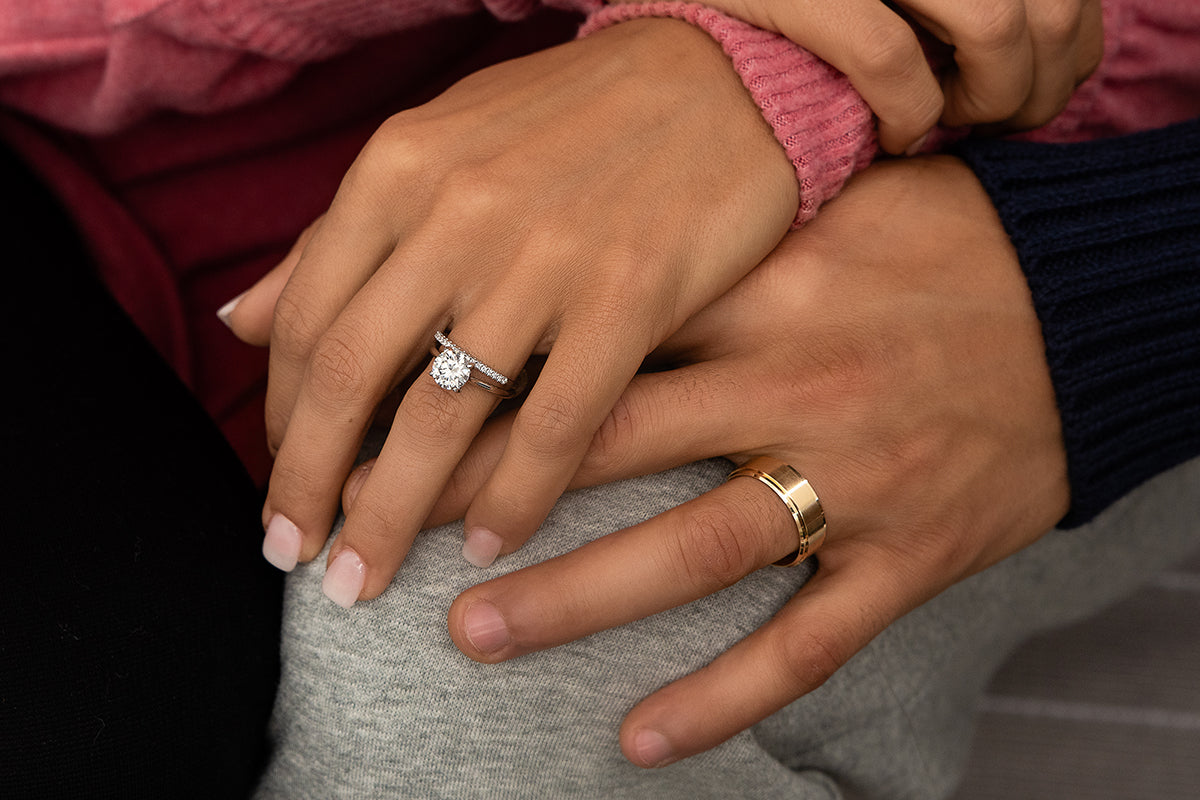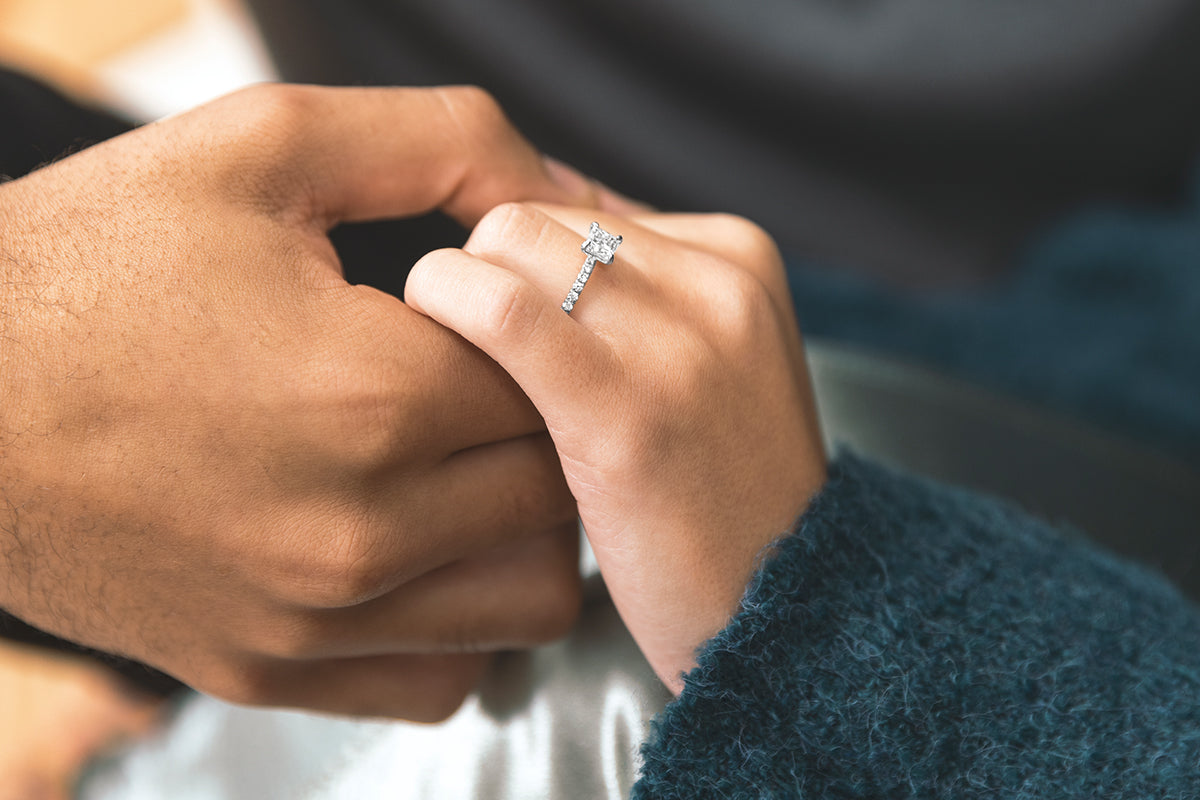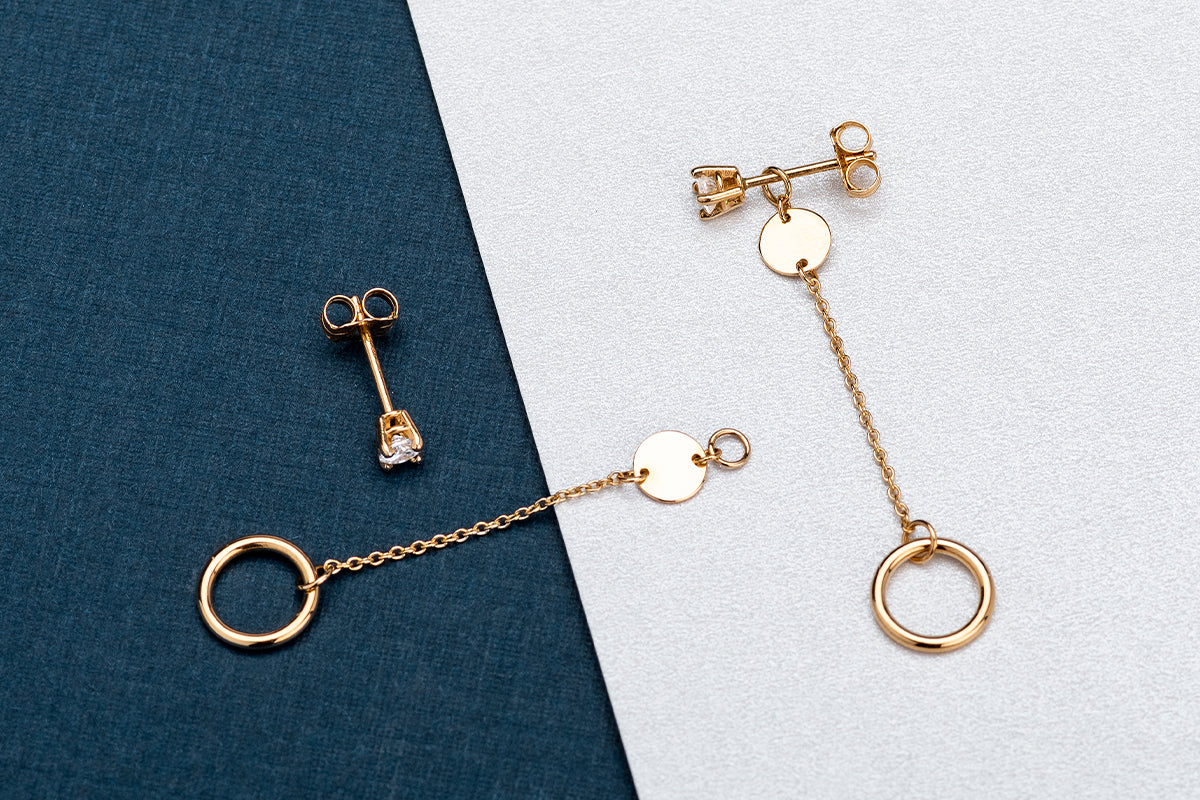The tradition of married people exchanging rings is truly timeless. Every time historians think they've pinned down the origins of wedding rings, someone finds an even older example. Today, it's commonly believed the tradition began in ancient Egypt, more than five thousand years ago! That would make it one of the oldest traditions we still follow.
Of course, tastes and styles in wedding rings have varied greatly over the ages. The ancient Egyptians exchanged rings of spun material, like braided hemp, rather than metal rings. Diamond rings were first exchanged in the 1300s or 1400s. Today, rather than diamond, couples are increasingly choosing moissanite wedding bands. Moissanite is a man-made gem that is even more brilliant than diamond but without all the ethical problems that come from supporting the conflict-fueled diamond trade.
One question, however, has popped up over and over in history: do wedding bands need to match? In truth, there isn't a clear-cut answer. It mostly depends on you and your partner, and the statement you want to make.
I. Why Choose Matching Moissanite Wedding Bands?
Having the bride and groom wear matching wedding bands is usually considered the "traditional" option. Although, for the record, grooms didn't commonly start wearing wedding bands until the 20th Century. Either way, for those who believe in matching rings, there are a few reasons:
1 - Matching rings make you a 'matched set'
Engagement rings and wedding bands are supposed to symbolize the connection between you and your partner - so it becomes a visible expression that you're a pair and have joined together. It can even send a bit of a "hands-off, we're committed" message.
2 - Display similar tastes
While not universal, "cute couples" often have matching or complementary senses of style that work well together. Having matching rings emphasizes this, and helps your outfits work as a paired couple, rather than as individual expressions.
3 - Show traditional values
Again, since matching rings are considered the 'traditional' choice, wearing them also sends the statement that you're embracing traditional views of marriage and commitment. This goes back to your presentation as a couple, and how you want to be perceived when you're together in public.
II. Why Choose Different Moissanite Wedding Bands?
Of course, in recent years, there have been a lot of new ideas in jewelry and weddings. Not everyone wants to go with the standard option, or specifically want to establish their partnership as being a little different.
With non-matched wedding bands, you can:
1 - Distinguish yourselves as individuals
Some people dislike the implication that a married couple should only be seen as a pair, rather than as two people. Wearing different band styles emphasizes how you remain independent as a person, even as you've chosen to connect your life to another.
2 - Avoid style disputes
If you and your partner have similar tastes in jewelry, that's great - but it's not always the case. Sometimes it's easier to select different types of wedding bands than one partner being pushed into wearing a ring they don't care for. This can be a particular issue if one person is significantly larger than the other. Thin rings tend to look bad on large hands, and it's the same for large rings on thin hands.
3 - Look your best
Not all jewelry styles, metal colors, or gem cuts look good on everyone. Choosing unmatched moissanite wedding bands allows both of you to pick a ring that looks best on you, and works with your skin tone, eye and hair color, and other attributes.
III. What If We're Having Trouble Deciding?
Selecting engagement rings and wedding bands should be a joyous opportunity to explore your relationship and how you want to present it - and it shouldn't become a source of stress. There are a few different compromises you might make, if one of you really does/doesn't want a matched set, or if differences in body shape make it difficult to find a single choice that suits you both.
1 - Ring scaling
Rings don't have to be 100% identical to look matched. Many jewelers are capable of 'scaling up' smaller rings so that they can look good on larger hands. As long as the rings are substantially the same, they'll create the same effect.
2 - Complementary rings
Complementary styles are the compromise between matched or mismatched moissanite wedding bands. For example, you might pick rings that are of different sizes and styles but are made of the same metals with a similar gem cut. Or, they could have similar style, but use different metals to better match your skin tones. Having some elements in common helps them still look like a matched set, even if the rings aren't identical.
3 - Create your own
Obviously, custom work is more expensive, but there are more capable craftspeople available today than ever before. If nothing you see in shops seems to work, in terms of your style and the message you want to send, you could always get creative with your partner to invent the perfect rings!
Feel Good About Your Wedding Bands with Moissanite
No matter which option you choose - matched, mismatched, or complementary - you can feel good about your purchase when you choose moissanite. Moissanite is almost as hard as diamond, so you can wear your wedding band every day for decades without fear. Better yet, it's even more brilliant and sparkly than a diamond! You get mesmerizing rainbow flashes when light hits the facets, making for a truly distinct and beautiful ring.
Plus, moissanite is always conflict-free. No one was harmed to create your wedding rings, and that can get your marriage off to a feel-good ethical start!
Moissanite Outlet has a huge range of moissanite engagement rings, with options for every person regardless of shape, color, or style preference. Click here to browse our selection.




Leave a comment
All comments are moderated before being published.
This site is protected by hCaptcha and the hCaptcha Privacy Policy and Terms of Service apply.